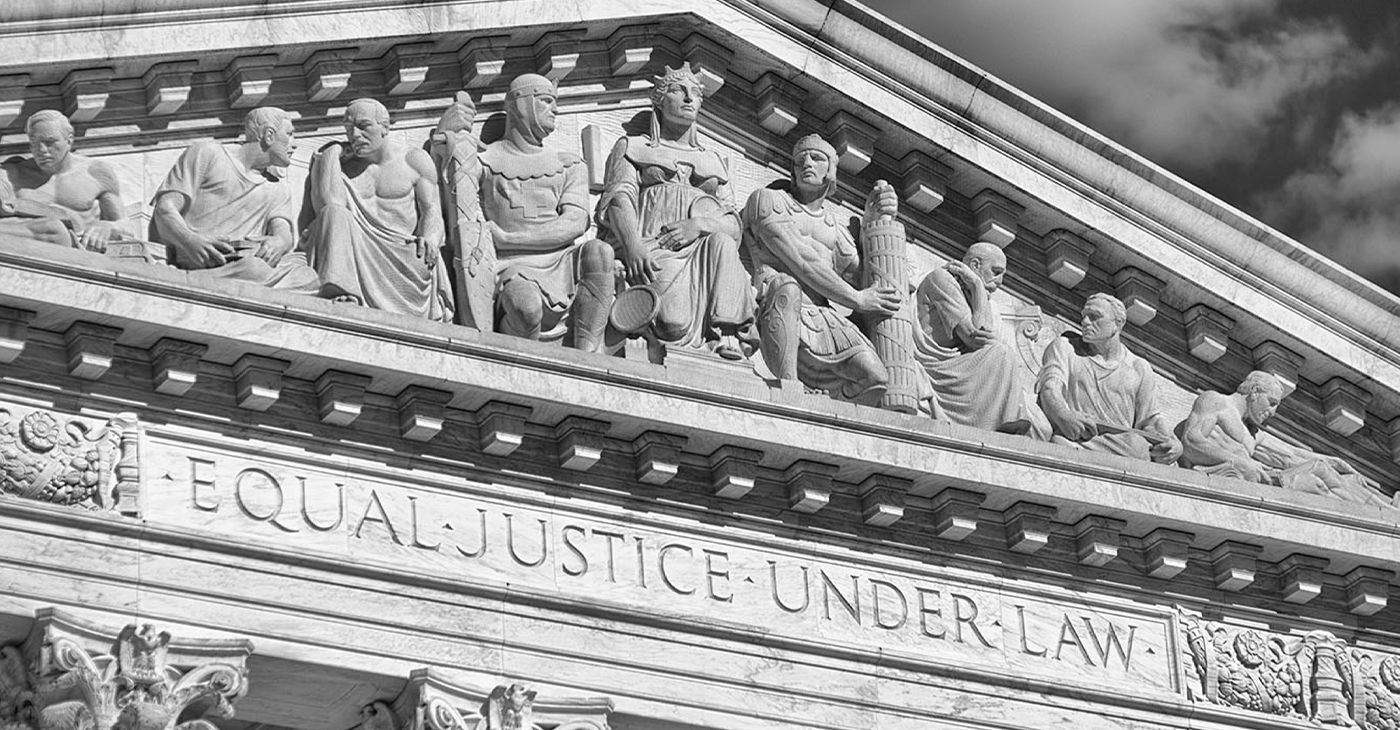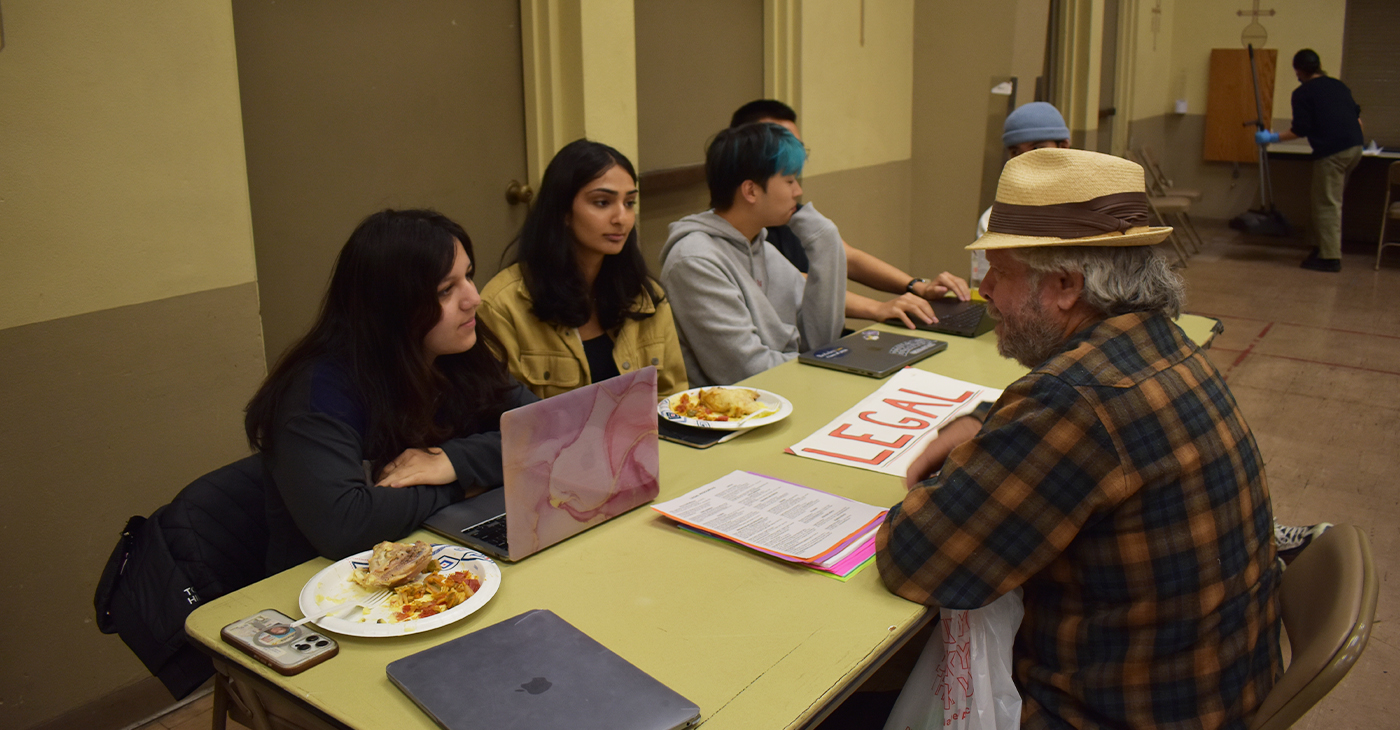Community
OP-ED: We Have to Face the Evils of Racism
By Richard Wembe Johnson, Folsom Prison
The senseless demented forces that propelled that young white man to slaughter innocent Charleston, S.C. Black churchgoers, while praying and studying their bibles, is indicative of how far we’ve come in bridging the racial divide.
<p>
For those of us who were around in 1963, the pains of the bombing of a Birmingham Black Church that slaughtered 4 girls remain so vivid.
Just as in Charleston, their only perceived wrong was being born Black.
Unfortunately there are still too many of us, both Black and White, who continue to believe that if they remain silent, the sickness of racism that plagues our society will go away.
The racists who act out with murderous intent aren’t born with evil lurking within them, but rather they learn and adopt some of the negative views of America’s ingrained institutional racism.
The challenge for us remains. Unless we are dedicated to working to make a change, racism will remain unchecked. It’s not solely the availability of guns, the confederate flag nor the individuals who see Black advancement as a threat to white supremacy that are driving this upsurge of violence against Blacks.
We should remain vigilant on rooting out racial hatred and not just wait for tragic events to happen to prick our consciences.
Our society remains largely unchanged despite the fact that there have been numerous public and private discussions and dialogues advocating for change.
To make real change we must face this issue dead on and not make excuses. Firstly, who is committing these acts of pure hatred?
Secondly, what steps can we make to reach these professed racist before they act?
Thirdly, we must recognize the fundamental foundations of racism, even within ourselves.
Fourthly, there must be a united front to combat racism throughout our society on all levels.
It seems clear that gunman Dylann Roof was motivated by racial hatred to commit vicious acts of mass murder. How many more atrocious demonstrations of hatred are needed before real change occurs?
We can’t as a society continue to acquiesce and sit idly by, with a lack of courage to face the evils of racism.
While many of us continue to march, demonstrate and plead for justice, that effort is not enough. We must go further by honestly and directly facing down the source of this evil racism.
I believe we can have an amiable, fair and just society if we unite to make a change.
Our commitment to God and the belief that if we act on the principles of what is the common good, we can then help to defeat racism in this world.
Activism
City of Oakland Celebrates Reopening of Main Library
“Libraries are such critical facilities for all Oaklanders, whether it’s children coming to story-time, adults reading the newspapers or borrowing the latest novels, and people engaging with a range of services and programs that the library hosts,” said Council President and District 2 Councilmember Nikki Fortunato Bas. “Such library services and programs are only possible when the facility’s electricity, heating, roof, and lighting are fixed and running efficiently. I’m proud to join this re-opening of our Main Public Library.”

The branch had been closed since May for critical infrastructure upgrades
Special to the Post
The City of Oakland leadership and community partners gathered to celebrate the reopening of the Main Library after completion of critical infrastructure upgrades to enhance the library’s facilities and provide a better experience for patrons.
Renovations include new roof installation, skylight repair, critical electrical system upgrades, new boiler control system installation, auditorium heating and cooling system installation, and improvements to lighting, flooring and ceilings throughout the building.
“This is truly something to celebrate, the reopening of our wonderful Main Library! I congratulate the staff and our partners for this important project to make the Main Library a more comfortable place for everyone for years to come, said Oakland Mayor Sheng Thao. “Thank you to Oakland voters and the California State Library for making these crucial improvements possible.”
“Libraries are such critical facilities for all Oaklanders, whether it’s children coming to story-time, adults reading the newspapers or borrowing the latest novels, and people engaging with a range of services and programs that the library hosts,” said Council President and District 2 Councilmember Nikki Fortunato Bas. “Such library services and programs are only possible when the facility’s electricity, heating, roof, and lighting are fixed and running efficiently. I’m proud to join this re-opening of our Main Public Library.”
“Public libraries are a wonderful resource for our residents, offering a safe space for learning and being,” said District 3 Councilmember Carroll Fife. “It is critical to improve and modernize our libraries so more members of our community can utilize and enjoy them. I’m excited that the necessary renovations to the Main Library have been completed successfully and thank everyone involved, particularly the City team, who helped secured the necessary grant funds for this work.”
“I am proud of the City staff and project partners who kept this important project on schedule and under budget,” said Assistant City Administrator G. Harold Duffey. “The library is an incredibly important resource for our community members, and this project is an investment into the library’s future.”
“December 2nd was a momentous occasion for Oakland Public Library as we proudly reopened the doors of the Main Library following extensive infrastructure repairs,” said Director of Library Services Jamie Turbak. “Closing the Main Library for six months was no easy decision, as it serves as the central hub for our library system and is truly the heart of Oakland. Yet, this renovation was essential, representing more than just physical upgrades—it reflects our ongoing commitment to creating a safe, welcoming space for everyone.”
The City Administrator Jestin Johnson also attended the press conference and signalled his support for the completion of the record-setting completion of the renovations. Gay Plair Cobb, a newly appointed Library Commissioner said the Library represents the soul and brains of our community.
The Oakland Public Library secured funding for these crititcal repairs through a variety of sources. The California State Library’s Building Forward Library Facilities Improvement Program awarded the Main Branch $4.2 million. To comply with the grant terms, the City of Oakland provided matching funds through Measures KK, as approved by the Oakland City Council in October 2023.
The Main Library will host an Open House to celebrate the reopening on February 22, 2025, 10 a.m. – 5:00 p.m.
About the Oakland Public Library
The Oakland Public Library is a part of the City of Oakland in California and has been in existence since 1878. Locations include 16 neighborhood branches, a Main Library, a Second Start Adult Literacy Program, the Oakland Tool Lending Library, and the African American Museum and Library at Oakland (AAMLO). The Oakland Public Library empowers all people to explore, connect, and grow. Oaklandlibrary.org
Activism
Biden’s Legacy Secured with Record-Setting Black Judicial Appointments
His record surpasses previous efforts by his predecessors. President Jimmy Carter appointed 37 Black judges, including seven Black women. In stark contrast, Donald Trump’s first term resulted in only two Black women appointed out of 234 lifetime judicial nominations. The White House said Biden’s efforts show a broader commitment to racial equity and justice.

By Stacy M. Brown
WI Senior Writer
President Joe Biden’s commitment to diversifying the federal judiciary has culminated in a historic achievement: appointing 40 Black women to lifetime judgeships, the most of any president in U.S. history.
Biden has appointed 62 Black judges, cementing his presidency as one focused on promoting equity and representation on the federal bench.
His record surpasses previous efforts by his predecessors. President Jimmy Carter appointed 37 Black judges, including seven Black women. In stark contrast, Donald Trump’s first term resulted in only two Black women appointed out of 234 lifetime judicial nominations.
The White House said Biden’s efforts show a broader commitment to racial equity and justice.
Meanwhile, Trump has vowed to dismantle key civil rights protections, including the Justice Department’s Civil Rights Division.
“Having the Black woman’s experience on the federal bench is extremely important because there is a different kind of voice that can come from the Black female from the bench,” Delores Jones-Brown, professor emeritus at John Jay College of Criminal Justice, told reporters.
Lena Zwarensteyn of the Leadership Conference on Civil and Human Rights told reporters that these district court judges are often the first and sometimes the final arbiters in cases affecting healthcare access, education equity, fair hiring practices, and voting rights.
“Those decisions are often the very final decisions because very few cases actually get heard by the U.S. Supreme Court,” Zwarensteyn explained.
Biden’s nomination of Justice Ketanji Brown Jackson to the Supreme Court further reflects his commitment to judicial diversity. Jackson became the first Black woman to serve on the nation’s highest court.
Patrick McNeil, spokesperson for the Leadership Conference, pointed out that over half of Biden’s Black female judicial appointees have backgrounds as civil rights attorneys and public defenders, experience advocates consider essential for a balanced judiciary.
Meanwhile, Congress remains divided over the expansion of federal judgeships. Legislation to add 66 new judgeships—approved unanimously by the Senate in August—stalled in the GOP-controlled House until after the election. House Republicans proposed distributing the new judgeships over the next decade, giving three administrations a say in appointments. President Biden, however, signaled he would veto the bill if it reached his desk.
Rep. Jerry Nadler, D-N.Y., argued the delay was a strategic move to benefit Trump’s potential return to office. “Donald Trump has made clear that he intends to expand the power of the presidency and giving him 25 new judges to appoint gives him one more tool at his disposal,” Nadler said.
Activism
A Student-Run Group Provides Critical Support Services to Underserved Residents
Those visiting The Suitcase Clinic can get legal advice, sign up for food assistance, receive housing resources, get medical help, or enjoy a hot, fresh meal. They can also get haircuts and foot washes from the student volunteers. Nilo Golchini, executive director of the clinic, said one of the goals for most of the students working there is helping bridge the gap of trust that exists between many unhoused people and the healthcare and social welfare systems.

Part One
By Magaly Muñoz
Every Tuesday evening, the dining hall of First Presbyterian Church fills up with dozens of people eating, laughing and moving from table to table, receiving much-needed services from UC Berkeley students – just a few blocks away from the university’s campus.
Individuals seeking support services can be found in this multi-stationed room on the south end of the church talking to law students, student case managers, or receiving medical attention in a corner by healthcare professionals.
This weekly event is hosted by Cal students through a volunteer-run program called The Suitcase Clinic.
The clinic, founded in 1989, was intended to offer free resources to underserved communities in Berkeley and surrounding cities. The majority of the clinic’s clientele are unhoused or low-income people looking for extra support.
Those visiting the clinic can get legal advice, sign up for food assistance, receive housing resources, get medical help, or enjoy a hot, fresh meal. They can also get haircuts and foot washes from the student volunteers.
Nilo Golchini, executive director of the clinic, said one of the goals for most of the students working there is helping bridge the gap of trust that exists between many unhoused people and the healthcare and social welfare systems.
During their tenure in the program, many of the students say they become strong advocates for homelessness rights.

Visitors of the Suitcase Clinic can receive haircuts and foot washing by student volunteers every Tuesday evening. Photo by Magaly Muñoz.
“We’re also standing in solidarity with them. So, it’s not saying, ‘I’m going to help you, but I’m also going to stand with you,’” Golchini said.
Student volunteers get extensive training prior to working directly with clients. Those interested have to take a semester-long class to become versed in areas such as outreach, intersectionality, how to interact with unhoused people, how to sign people up for social services. and more.
Volunteers then get to pick from three different clinics: General, Women’s, or Youth and LGBTQ+.
The General Clinic is the most popular among visiting residents, while Women’s and Youth/LQBTQ+ have more specialized services for attendees.
The Women’s Clinic has many of the similar services to General, but also includes nail painting, childcare, and massages.
The Youth and LGBTQ+ Clinic offers a safe space for young people navigating living on the streets, with services that include housing referrals, wellness and recreation classes and employment resources.
Golchini explained that it’s important for them to keep these clinics separate because the different demographics experience poverty and homelessness differently than those who visit the General Clinic.

Suitcase Clinic student workers posing for a photo with a frequent clinic attendee. The Clinic is open to Berkeley unhoused and low-income residents who need medical or legal service, or a hot meal. Photo by Magaly Muñoz.
“We’re able to provide spaces where people can come in and feel safe and not feel like they’re constantly worried that something’s going to happen to them,” she said.
An outreach team also visits encampments every other Saturday in the Berkeley area to provide hygiene kits and encourage people to visit the in-person clinic, if possible.
However, Golchini said engagement has been low for some time now due to a recent decision by the U.S. Supreme Court that allows cities to ban and cite people for sleeping on the streets.
She said a lot of their clientele got displaced to other cities over time, making it difficult to stay in contact with the services the Clinic was providing for them.
But that hasn’t slowed down the students at the Clinic, if anything, it has pushed them to do more for the community they serve.
-

 Activism4 weeks ago
Activism4 weeks agoOakland Post: Week of November 20 – 26, 2024
-

 California Black Media3 weeks ago
California Black Media3 weeks agoCalifornia to Offer $43.7 Million in Federal Grants to Combat Hate Crimes
-

 Activism4 weeks ago
Activism4 weeks agoAn Inside Look into How San Francisco Analyzes Homeless Encampments
-

 Black History3 weeks ago
Black History3 weeks agoEmeline King: A Trailblazer in the Automotive Industry
-

 California Black Media3 weeks ago
California Black Media3 weeks agoCalifornia Department of Aging Offers Free Resources for Family Caregivers in November
-

 California Black Media3 weeks ago
California Black Media3 weeks agoGov. Newsom Goes to Washington to Advocate for California Priorities
-

 Activism3 weeks ago
Activism3 weeks agoOCCUR Hosts “Faith Forward” Conference in Oakland
-

 #NNPA BlackPress4 weeks ago
#NNPA BlackPress4 weeks agoPRESS ROOM: Clyburn, Pressley, Scanlon, Colleagues Urge Biden to Use Clemency Power to Address Mass Incarceration Before Leaving Office

























































